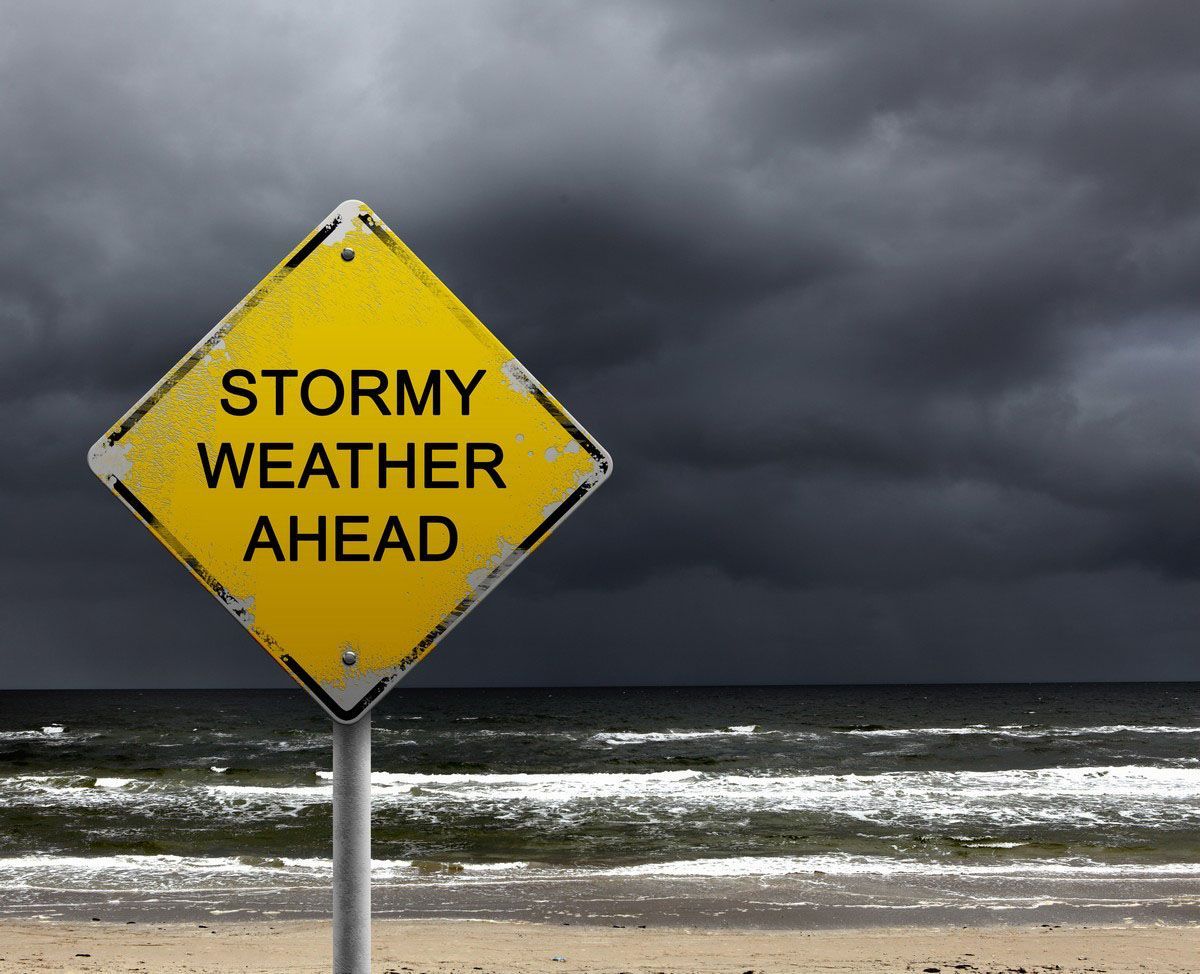August 27, 2025
This is a subtitle for your new post
The impact of weather on business operations and strategic planning can't be overstated. Weather consultants play a crucial role in helping companies mitigate these risks, ensuring continuity and optimal performance. Let's explore how weather consultants assist businesses in avoiding major risks related to weather impacts.
1. Minimizing Operational Downtime
Operational downtime is a significant risk for any business and can lead to financial losses and damage to reputation. Weather consultants identify weather-sensitive operations within an organization to minimize this risk. By closely analyzing operational processes, these experts can determine which areas are most vulnerable to weather conditions. This assessment helps planners develop effective strategies to protect these operations. The first step is often identifying critical processes that need constant monitoring and adaptation when faced with adverse weather conditions.
Creating response protocols is an effective strategy devised by weather consultants. These protocols set out what actions need to be taken in case of various weather-related events. Detailed plans ensure that all employees are aware of their responsibilities during an emergency. For instance, if extreme weather is anticipated, a protocol might specify the rescheduling of certain operations or implementation of backup plans. Prompt and effective responses to adverse conditions significantly reduce the impact on operations.
Implementing real-time monitoring systems forms an integral part of minimizing operational downtime. With advanced technology, weather consultants provide businesses with the tools necessary to track weather patterns and forecasts accurately. These monitoring systems allow companies to detect potential weather threats early, giving them sufficient time to react appropriately. Furthermore, training staff on emergency procedures ensures everyone knows what steps to take when adverse conditions occur. Coordination with local authorities also enhances the company’s ability to handle emergencies effectively.
2. Safeguarding Supply Chain Continuity
The supply chain is a lifeline for many businesses, and its disruption can be catastrophic. Weather consultants help companies analyze supply chain vulnerabilities to pinpoint areas that are susceptible to weather impacts. In doing so, businesses gain insight into potential weak points and prepare for possible disruptions. This involves examining transportation modes, storage facilities, and sourcing locations that might be affected by adverse weather. The goal is to identify critical points where the weather might cause significant delays or interruptions.
Establishing alternative supply routes is another vital aspect of ensuring supply chain continuity. Businesses guided by weather consultants often develop contingency plans that include alternative sourcing and routing options. By having multiple supply routes and partnerships, companies can swiftly switch to alternatives when one route faces disruption. Other than alternative routes, diversifying the supplier base further mitigates risks. Companies with multiple suppliers can continue operations even if one supplier experiences weather-related setbacks.
Strengthening supplier partnerships is a critical strategy weather consultants advocate for supply chain resilience. Strong relationships with suppliers facilitate enhanced communication and cooperation during emergencies. Furthermore, monitoring global weather patterns helps businesses anticipate disruptions throughout the supply chain. According to Statista, since 2000, extreme temperatures, both heat and cold, have cost the U.S. economy more than $7.5 billion. This data underscores the importance of proactive supply chain management in mitigating potential financial losses due to weather extremes.
3. Enhancing Risk Management Strategy
Integrating weather data into risk assessments significantly enhances a company’s risk management strategy. Weather consultants provide detailed insights that help identify potential threats to business operations. By examining historical data and predictive models, companies can better understand how weather can impact their operations. As a result, businesses can develop customized risk mitigation plans that address specific weather-related threats. Adapting these plans over time is crucial for maintaining an effective risk management strategy.
Utilizing predictive analytics for forecasting is an essential aspect of advanced risk management. With tools that analyze vast amounts of data, businesses can forecast weather patterns well in advance. This foresight allows organizations to prepare for likely weather-induced disruptions and adjust their operations accordingly. Regular safety drills, as advised by weather consultants, ensure that companies are always ready to implement their response plans. Additionally, reviewing and updating risk policies keeps the risk management strategy relevant and effective.
Conducting regular reviews and updates of risk policies is another crucial role that weather consultants play. Agility in policy revision ensures preparedness. Review sessions allow organizations to learn from past weather events and refine their response and recovery protocols. Additionally, regular updates accommodate new technology and methodologies that improve weather impact forecasting and response. Ultimately, by maintaining a dynamic risk management strategy, businesses can better cope with weather-related challenges.
4. Protecting Assets and Infrastructure
Protecting assets and infrastructure from weather-related damage is a priority for many businesses. Weather consultants conduct site vulnerability assessments to determine which aspects of an organization's physical infrastructure may be at risk. This assessment often involves a thorough examination of building materials, location, and structural integrity. Identifying vulnerabilities allows businesses to take proactive measures to protect their facilities. Reinforcing physical structures, such as roofs and walls, can prevent extensive damage during severe weather events.
Implementing advanced warning systems is another essential step in asset protection. Early warning systems can detect approaching weather threats and alert companies to take action. By preparing for extreme weather events in advance, businesses can safeguard their assets and minimize the likelihood of severe damage. Ensuring adequate insurance coverage is another critical strategy advised by weather consultants. Insurance not only offers financial protection but also enables swift recovery after a weather event.
Creating emergency backup systems acts as an additional layer of protection for critical assets and infrastructure. Businesses with redundancies in their systems can avoid catastrophic failures during emergencies. These backup systems, supported by weather consultants, ensure that critical functions continue even when primary systems fail. Additionally, a well-prepared plan helps businesses remain operational during and after a weather event. All of these measures together form a robust defense against weather-induced infrastructure damage.
5. Facilitating Informed Business Decisions
Informed decision-making is vital to navigating the complexities of weather impacts on business operations. Weather consultants provide data-driven insights that equip companies to make sound strategic decisions. Detailed weather data allows businesses to align their strategies with current and future weather patterns. This includes identifying suitable times for launching new products or expanding geographically. Ultimately, these insights enable companies to optimize their operations for maximum efficiency and profitability.
Supporting strategic planning with weather data helps businesses stay one step ahead of potential disruptions. Long-term forecasting is a powerful tool in strategic planning, as it provides invaluable insight into future weather trends. With the guidance of weather consultants, businesses can plan expansions or scale operations with weather considerations in mind. Such strategic foresight ensures that companies remain resilient in the face of climate uncertainties. Moreover, consultants assist in evaluating market opportunities and risks associated with varying weather conditions.
Guiding investment in resilience is another key area where weather consultants add value. Investing in infrastructure upgrades and systems that bolster weather resistance offers a competitive advantage. Businesses can leverage consultant insights to prioritize investments and secure long-term sustainability. Enhanced resilience not only protects against losses but also strengthens the brand’s commitment to stability and reliability. Over time, these investments pay off by reducing operational costs associated with weather-related disruptions.
Weather consultants provide invaluable services that enable businesses to navigate the complexities of weather-related challenges. By minimizing risks, safeguarding assets, and facilitating informed decisions, these experts help companies maintain stability and thrive, regardless of the weather conditions. Their contributions are essential for any business seeking to protect itself against the unpredictable nature of the climate. Partner with The Weather Pros today and gain the expert forecasting and consulting support your business needs to stay resilient, profitable, and prepared, no matter what the weather brings.





